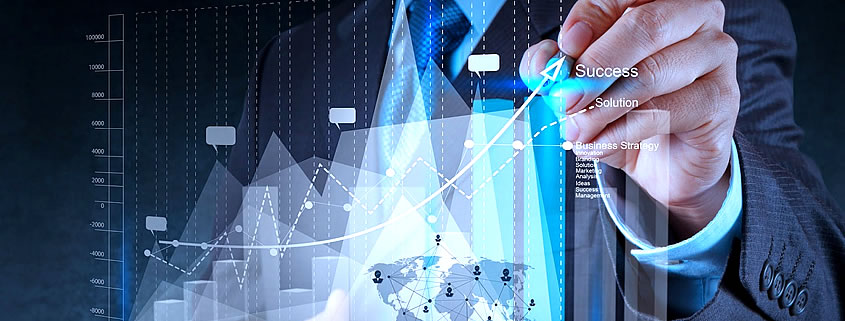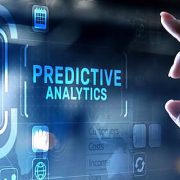Utilizing Business Intelligence in the Hospitality Sector
Utilizing Business Intelligence in the Hospitality Sector
In a fiercely competitive and experience-driven industry like hospitality, staying ahead of guest expectations and operational efficiencies is paramount. The rise of Business Intelligence (BI) in the hospitality sector is transforming the way hotels, resorts, and travel businesses make decisions, personalize services, and drive growth.
In this in-depth blog post, we explore how BI is being utilized in the hospitality sector, highlight real-world brand examples, and provide an SEO-optimized overview of strategies and tools you can apply to your business.
What Is Business Intelligence in Hospitality?
Business Intelligence in the hospitality industry refers to the use of data analytics tools and technologies to collect, analyze, and interpret business data. This helps hospitality businesses make informed decisions that enhance customer experiences, boost revenue, and streamline operations.
SEO Keywords: business intelligence in hospitality, hotel data analytics, BI tools for hotels, hospitality analytics software
Why Business Intelligence Is Crucial for Hospitality
- Enhanced Guest Experience
- BI allows for the personalization of services by analyzing past behaviors and preferences.
- Revenue Optimization
- Revenue managers use BI to analyze booking trends, predict demand, and adjust pricing strategies.
- Operational Efficiency
- By monitoring performance across departments, BI helps reduce waste and improve productivity.
- Forecasting and Demand Planning
- Accurate predictions for occupancy and staffing levels help prevent overbooking or underutilization.
- Marketing Effectiveness
- BI identifies which channels and campaigns yield the highest ROI.
Key BI Applications in the Hospitality Sector
1. Customer Segmentation and Personalization
Hotels can use BI to segment guests based on behavior, demographics, and preferences. This allows for highly targeted promotions, loyalty programs, and personalized guest experiences.
2. Revenue Management
BI tools enable dynamic pricing models that consider seasonality, competitor rates, booking channels, and historical data.
3. Operational Insights
From housekeeping efficiency to food and beverage performance, BI helps monitor and improve daily operations.
4. Guest Feedback and Sentiment Analysis
Using data from reviews, surveys, and social media, BI tools provide insights into customer satisfaction and service gaps.
5. Marketing Campaign Optimization
Evaluate which campaigns are driving bookings, increasing conversions, and enhancing guest loyalty.
SEO Tip: Use phrases like “hotel guest segmentation analytics” or “revenue management BI tools for hospitality.”
Real-World Brand Examples
1. Marriott International
Marriott uses BI to personalize guest experiences across its global properties. Their data-driven strategy includes leveraging machine learning to predict guest preferences and automate service enhancements.
2. Hilton Hotels & Resorts
Hilton’s “Connected Room” initiative uses BI to gather guest preferences, allowing for room automation and highly tailored experiences. Their BI strategy integrates with CRM and booking data to optimize occupancy and customer satisfaction.
3. Accor Group
Accor leverages real-time analytics through its BI platform to manage over 5,000 properties globally. Data insights help the company adjust pricing strategies, streamline procurement, and boost guest loyalty.
4. Airbnb
While not a traditional hotel brand, Airbnb uses BI extensively to monitor guest behavior, host performance, market trends, and user reviews. Their search algorithm continuously improves using BI-generated insights.
Visual Suggestion: Diagram showing how data flows from guest interactions (bookings, reviews, services used) into BI tools that power decisions in marketing, operations, and revenue management.
Top BI Tools Used in Hospitality
- Oracle Hospitality OPERA: Offers property management and BI integration
- IBM Cognos Analytics: Known for advanced reporting and AI integration
- Tableau: Widely used for visual analytics and dashboards
- Microsoft Power BI: Ideal for integrating data from multiple sources in real-time
- Infor Hospitality: Offers specialized BI modules for hotels and resorts
SEO Tip: Add variations like “top hotel BI software” or “best analytics platforms for hospitality industry.”
Steps to Implement BI in a Hospitality Business
- Define Clear Objectives
- Set goals such as improving guest satisfaction, increasing occupancy, or reducing operational costs.
- Integrate Data Sources
- Connect PMS (Property Management Systems), POS, CRM, and online booking platforms.
- Choose the Right BI Platform
- Select tools that offer scalability, mobile accessibility, and integration flexibility.
- Ensure Data Accuracy and Cleanliness
- Poor data leads to poor insights. Clean and standardize data regularly.
- Empower Staff With Insights
- Train department heads and managers to read and act on BI dashboards.
- Monitor and Optimize Continuously
- Use KPIs and regular reports to refine strategies and improve results over time.
Common BI Challenges in Hospitality and How to Overcome Them
✖ Disconnected Data Systems
Solution: Use cloud-based BI tools that centralize data from various departments.
✖ Lack of Analytical Skills
Solution: Provide training or hire dedicated data analysts familiar with the hospitality landscape.
✖ Cost Constraints
Solution: Start with modular BI solutions that allow you to scale as you grow.
✖ Data Security and Compliance
Solution: Ensure GDPR compliance and use encrypted, access-controlled BI platforms.
Future Trends in Hospitality BI
- AI and Machine Learning Integration
- Advanced algorithms will drive even more personalized guest experiences and predictive maintenance.
- Voice and Chatbot Analytics
- Track and analyze customer interactions through AI-powered concierge services.
- Mobile BI Dashboards
- On-the-go managers will use smartphones and tablets for real-time decisions.
- Sustainability Analytics
- BI tools will help monitor energy usage, waste, and other sustainability metrics.
Conclusion: Turning Data Into Delightful Experiences
The hospitality sector thrives on memorable guest experiences and seamless operations. Business Intelligence empowers hoteliers and tourism businesses to move from reactive to proactive decision-making. From understanding guests better to optimizing pricing and enhancing service delivery, BI is revolutionizing the way hospitality does business.
Whether you’re running a boutique hotel or a global chain, implementing BI can unlock new levels of efficiency, profitability, and customer loyalty.












Leave a Reply
Want to join the discussion?Feel free to contribute!